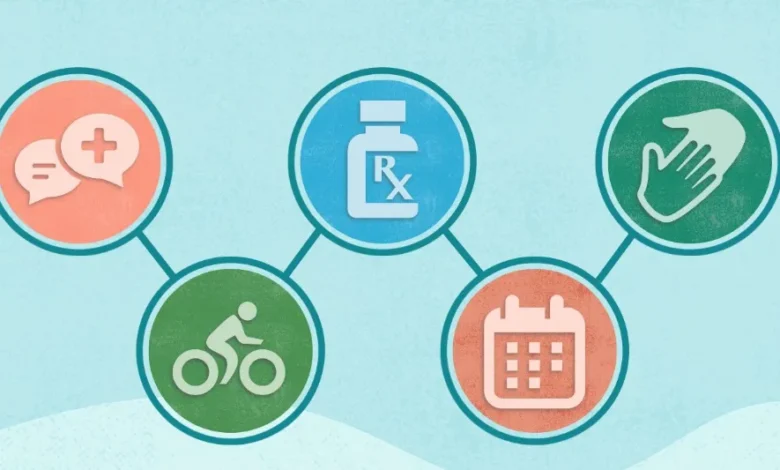Finding Balance: Medications for ADHD Symptoms

Contents
Understanding ADHD and Its Symptoms
Attention-deficit/hyperactivity disorder (ADHD) is a multifaceted neurodevelopmental disorder characterized by a range of symptoms, most notably persistent attentional difficulties, excessive hyperactivity, and impulsive behavior. Those with ADHD often struggle to concentrate on tasks, rein in their impulses, and organize their daily lives. This can result in substantial challenges across various life domains, including academic achievement, career success, and social relationships.
The extent to which ADHD affects an individual’s life can differ greatly, necessitating a holistic management strategy. Thankfully, medical advancements have yielded a variety of medications that effectively mitigate the symptoms of ADHD. These treatments, typically encompassing stimulants and non-stimulants, aim to balance the brain’s neurotransmitter activity, thereby enhancing concentration, diminishing hyperactivity, and improving impulse control. Consequently, many people with ADHD see a marked improvement in their ability to function daily, paving the way for achievements in educational settings, the workplace, and in social situations.
Stimulant Medications for ADHD
Stimulant medications rank among the most frequently prescribed remedies for ADHD, functioning to elevate levels of specific neurotransmitters in the brain. This elevation enhances concentration, attention, and impulse regulation. Notable examples of such medications include methylphenidate (found in Ritalin and Concerta) and amphetamine (present in Adderall and Vyvanse).
These medications come in both immediate-release and extended-release forms, offering customizable treatment options to meet the varied needs of individuals. Despite their effectiveness in alleviating ADHD symptoms, stimulant medications can lead to potential side effects, including insomnia, reduced appetite, and an elevated heart rate.
Non-Stimulant Medications for ADHD
Beyond stimulant medications, options extend to non-stimulant treatments for ADHD management. These alternatives are particularly beneficial for those who either do not find success with stimulants or cannot tolerate their side effects. By acting on different neurotransmitters in the brain, non-stimulant medications enhance focus and regulate impulsive behavior.
A prime example of such a medication is atomoxetine (Strattera). Distinct from stimulants, atomoxetine boasts a lower risk of abuse or dependence, making it an appropriate choice for individuals with a history of substance misuse or for those with specific reasons to avoid stimulant medications.
Individualized Treatment Approaches
In Orem, Utah, the journey to finding the optimal medication for ADHD often requires navigating through trial and error, as individuals react uniquely to different medications. Healthcare providers adopt a tailored approach to treating ADHD. They meticulously consider various factors like the intensity of symptoms, any concurrent conditions, medication preferences, and the likelihood of side effects before prescribing treatment. Beyond medication management, these providers also advocate for a holistic treatment plan that may include behavioral therapy, lifestyle changes, and adjustments in academic or work settings, aiming to assist those with ADHD in managing their symptoms and enhancing their overall quality of life.
With a comprehensive and personalized treatment strategy, individuals with ADHD are empowered to achieve balance and effectively control their symptoms, paving the way to lead rewarding lives. Additionally, for those hesitant about medication as the primary treatment option, there are alternative therapies available. These alternatives range from nutritional adjustments and physical exercise to mindfulness practices, offering a spectrum of options tailored to individual preferences and needs.
Conclusion
ADHD is a multifaceted disorder that significantly affects daily life. Both stimulant and non-stimulant medications can effectively manage its symptoms and enhance overall wellbeing. Individuals have access to healthcare providers skilled in tailoring treatment plans to meet their unique needs. Proper management and support enable those with ADHD to flourish in every aspect of life. However, it’s crucial to recognize that medication is part of a broader treatment strategy. A holistic approach is essential for effectively managing ADHD symptoms. By exploring medication options and collaborating with healthcare providers, individuals can achieve a balanced and successful life with ADHD.



